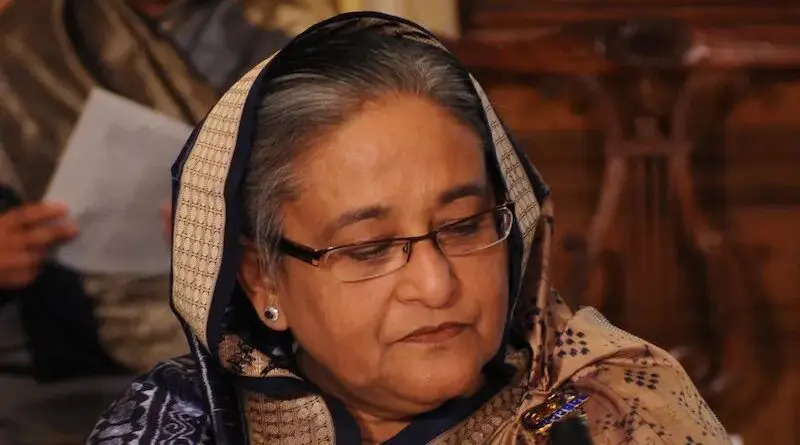Sheikh Hasina’s prolonged tenure as the Prime Minister of Bangladesh has become emblematic of the erosion of democratic norms and the entrenchment of authoritarianism within the country. Her administration’s systemic suppression of political opposition, control of media narratives, and intolerance for dissent have drawn sustained criticism, both domestically and internationally.
These developments signal not only a breakdown of democratic values but also a deliberate effort to dismantle institutions meant to protect civil liberties and the rule of law.
Central to this regime’s oppressive machinery is the Rapid Action Battalion (RAB), established in 2004 ostensibly to combat crime. Over the years, RAB’s mandate has devolved into a tool of state repression. Multiple reports from organizations such as Human Rights Watch have documented RAB’s involvement in extrajudicial killings, enforced disappearances, and acts of torture.
These atrocities disproportionately target political opponents, particularly members of the Jamaat-e-Islami party, highlighting the weaponization of security forces to silence dissent.
Recent findings by an independent commission investigating enforced disappearances implicate Sheikh Hasina’s government in over 3,500 such cases. The commission’s interim report, titled Revealing the Truth, uncovers the structural depth of these violations.
Security units like the Detective Branch (DB) and the Counter-Terrorism and Transnational Crime (CTTC) play significant roles, coordinating with RAB to execute abductions and other abuses. Victims are routinely transferred between units, subjected to severe torture such as electric shocks, and ultimately eliminated. This calculated dispersion of responsibility shields perpetrators from accountability while institutionalizing systemic violence.
The deliberate operational ambiguity within Bangladesh’s security apparatus reflects a strategy to evade international scrutiny. Security personnel operate under shifting identities, further complicating efforts to trace culpability.
High-ranking officials, including Major General Tarique Ahmed Siddique and Major General Ziaul Ahsan, have been identified as central figures in orchestrating these crimes. Despite mounting evidence, institutional opacity and a lack of judicial oversight perpetuate a culture of impunity.
Beyond the misuse of security forces, Sheikh Hasina’s administration has exploited the judiciary to suppress political opposition. The targeted prosecution and execution of Jamaat-e-Islami leaders on charges widely criticized as politically motivated exemplify this judicial manipulation.
The judiciary, once a hallmark of Bangladesh’s democratic promise, has been reduced to an instrument of political control, stifling any meaningful checks on executive power.
These authoritarian tendencies have broader implications for Bangladesh’s standing on the global stage. Domestically, the government’s actions fracture the country’s democratic foundations, undermining citizen trust in state institutions.
Internationally, these abuses jeopardize Bangladesh’s reputation as an emerging regional power and a progressive example within South Asia. The erosion of human rights and democratic governance risks alienating key allies and deterring foreign investment, further exacerbating socio-economic challenges.
The commission investigating enforced disappearances has unequivocally recommended the dissolution of RAB, emphasizing its role as a primary enforcer of state-sponsored repression. However, addressing these issues demands more than institutional restructuring.
The pervasive culture of unaccountability and systemic misuse of state resources requires comprehensive reforms. Effective mechanisms for judicial independence, civilian oversight of security forces, and transparent governance are essential to curbing authoritarian overreach.
Sheikh Hasina’s focus on consolidating power has also stunted Bangladesh’s socio-economic potential. While the government frequently touts infrastructure achievements and economic growth metrics, these narratives mask growing inequalities and citizen discontent.
True development extends beyond physical projects; it requires an environment where freedoms are safeguarded, dissent is respected, and citizens are empowered to participate in governance.
The international community bears a moral responsibility to intervene constructively. Targeted sanctions against individuals and entities implicated in human rights violations, coupled with diplomatic engagement, can pressure the Bangladeshi government to initiate reforms.
Regional stakeholders, including India and ASEAN members, must prioritize human rights in their dealings with Dhaka, ensuring that strategic and economic partnerships do not enable further authoritarianism.
Bangladesh’s citizens deserve leadership that embodies democratic principles and prioritizes inclusivity. Sheikh Hasina’s current trajectory threatens to deepen domestic instability and international isolation.
To reverse this course, her administration must commit to genuine democratic reforms, restore the integrity of state institutions, and uphold the fundamental rights of all citizens. The path to a prosperous and equitable Bangladesh lies in rejecting authoritarian impulses and embracing governance that champions justice, equality, and transparency.


